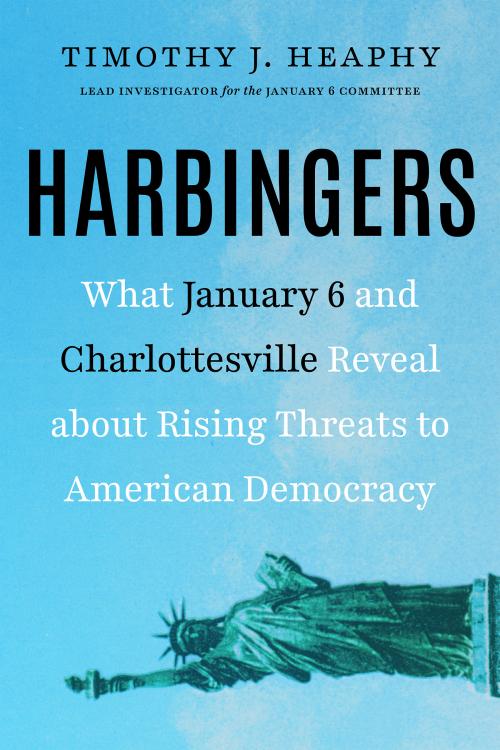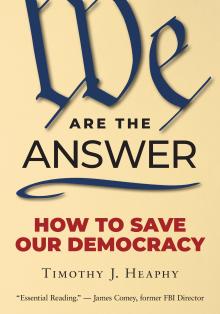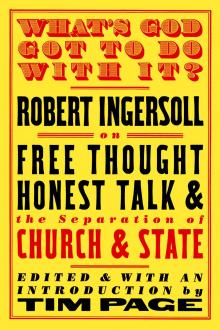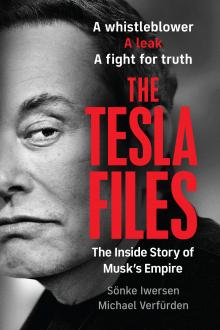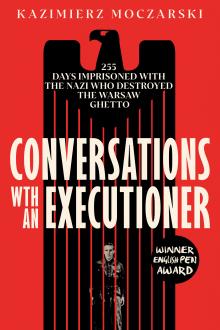Excerpt
Introduction
Reluctant Expert
It was a Washington DC day as dissimilar to January 6 as I could imagine. For one, it was sweltering, the kind of day when it’s easy to remember the capitol’s swampy origins. It was also calm and quiet on this early Monday morning, with no line to pass through security at the O’Neill House Office Building on C Street SW. Despite the ordinariness of that morning, I was keenly aware of the importance of the day and the journey on which I was about to embark as I headed into my first day of work as the chief investigative counsel of the House of Representatives Select Committee to Investigate the January 6th Attack on the United States Capitol.
I was a new employee in Congress and pulled out my freshly-made staff photo ID to show the Capitol Police officers at the gate that I belonged there. I made my way to the fourth floor and scanned into a cavernous, largely empty space that had been recently configured to house the investigative staff of the select committee. It looked like a newsroom, with rows of empty desks and computers separated into small workstations. No one yet occupied those carrels, as I had not yet approached my first task as chief investigative counsel: hiring investigators. There were five small offices along one wall, the last of which was mine. I walked into the sterile space wondering how I would fill it, and my time, over the coming months. While I was uncertain about what lay ahead, I knew that the work on which we were about to embark had the capacity to change American history.
Over the course of my career, I’ve learned that lawyers often become accidental specialists. The matters on which they work, the cases they try, and the endeavors they pursue inform their subsequent choices and opportunities. I did not set out to specialize in political violence. Nonetheless, I was standing in the empty House office building at the helm of a tremendously important investigation into the most searing episode of such violence this country has seen in many years. Through a series of unexpected challenges in the communities I call home, I have been fortunate enough to be part of the response, the understanding, and the healing. I am, in many ways, a reluctant expert in political violence and all it reveals about America.
A few years earlier, I led a team that conducted an independent review of the racist riot that occurred in my hometown of Charlottesville, Virginia on August 12, 2017. Back then, I was a former United States attorney hired by the city government to conduct an “after-action” report detailing how the city prepared for and managed the Unite the Right rally that became a forum in which fascist white nationalists clashed with anti-racist counter-protesters in the small city in which I live. Our team issued a lengthy report which contained harsh criticism of law enforcement, city and state officials, and other decision makers for their failure to protect either public safety or free speech in Charlottesville. The “Heaphy Report” became the definitive account of that tragic day.
My experience in Charlottesville ultimately led to my role as Chief Investigative Counsel for the January 6 committee. Over the course of my work on these investigations, I have spent considerable time looking closely at these two seminal events. Along with a team of experts, I spent untold hours reviewing footage, reading emails, text messages, and other documents generated before, during, and after by people who both perpetrated and tried to prevent them. This work has given me a keen understanding of political violence in America: where it comes from, how it manifests, and how to stop it. This book is an attempt to share that hard-gained knowledge in an effort to understand growing political violence in America as a continuous thread rather than discrete incidents. It’s hard to look at, unsettling to see, but we must not look away.
Charlottesville and January 6 are inextricably linked in the consciousness of Americans. They have much in common, and examining both events informs broader lessons about the state of American democracy. As horrific as those days were, studying, considering, and talking about them can point us toward a way forward. A close look at the facts and circumstances reveals lessons that can help make spasms of political violence less likely in the years ahead.
This book will not rehash the results of our investigations. Readers interested in more detail about what happened in Charlottesville and at the Capitol can review the reports on which I worked, which tell those tragic stories in graphic detail. Instead, I intend to identify and make meaning of commonalities between the events, beyond the simple fact that both turned lethally violent. And I will expose the dynamics that have escaped the notice and understanding of most Americans, even those who follow the news closely.
One central connection between Charlottesville and January 6 is that both events were planned online, in plain view, on social media. The organizers of the Unite the Right rally encouraged like-minded people to attend by actively promoting the event on Facebook, Twitter, Parler, Reddit, and other social media sites. A little over three years later, the Proud Boys, Oath Keepers, and others who sincerely but misguidedly believed the 2020 Presidential election had been stolen used these same platforms to draw attention to the January 6 certification proceeding at the Capitol.
The rapid and successful promotion of both events demonstrates the pervasive power of social media. Most Americans today receive information that is filtered through platforms on which false information proliferates. Social media companies are businesses that rely upon keeping users engaged, actively clicking, reading, and reacting to content. Sophisticated algorithms track a user’s interests and push similar content, drawing and keeping their attention with material that is often increasingly provocative. Social media companies do very little to monitor, flag, or take down hate speech, far-out conspiracy theories, or other false and incendiary content, which makes these platforms unreliable sources of information. They also connect users to others with similar views in affinity groups, which become echo chambers for the spread of misinformation. This landscape is largely unregulated and misunderstood by consumers.
Despite the fact that both the Charlottesville rally and the January 6 attack on the Capitol were planned on open-source channels, law enforcement was woefully unprepared for both events. In Charlottesville, the city was unable to protect either public safety or free speech despite the presence of ample numbers of officers and specialized units. At the Capitol, rioters were able to violently enter the seat of government during the joint session of Congress and came dangerously close to the vice president and other elected officials as they were forced to evacuate. These were not intelligence failures, as there was ample warning of potential violence before each event. They were not resource failures, as sufficient numbers of officers from different agencies were available and ultimately deployed to both locations. They were operational failures; planning did not incorporate the intelligence.
There are many reasons for the law enforcement failures in Charlottesville and at the Capitol. Dozens of agencies collect information on domestic violent extremism. Those agencies do a poor job sharing that information and ensuring it is available to planners in advance of mass demonstration events. Agencies like the Federal Bureau of Investigation place unduly restrictive limits on their use of open-source information due to First Amendment concerns. And as is always the case in America, race matters. Police agencies routinely misperceive the threats of violence posed by different racial groups. They underestimate the potential for violence presented by white men like those who converged on Charlottesville on August 12, 2017 and the Capitol on January 6, 2021. This racial bias is also reflected in the overreaction to potential violence in the wake of the murder of George Floyd in the summer of 2020. We mistakenly expect violence from Black and brown protesters and fail to anticipate violence from angry white men. Our investigations found that this bias was implicit but persistent. Like the social media policy issues outlined above, these systemic law enforcement failures require attention and constructive solutions.
The most salient commonality between Charlottesville and January 6 was how they metastasized from one core issue to broader forums for the expression of anger at institutions. Charlottesville started as a protest about the removal of Civil War statues in public space. It became a protest at which a constellation of groups came together to express anger about how our increasingly diverse culture threatened their historic privilege. The unifying principle on January 6 was belief in the “Big Lie” that the 2020 election had been stolen from President Trump. Many participants in the attack on the Capitol were, however, drawn there by a broader cynicism about government and disbelief in what they routinely hear from politicians, the media, and educational institutions. As in Charlottesville, some January 6 rioters believed that the national government is run by self-interested elites determined to replace them with immigrants. Others were motivated by a belief that public health mandates during the pandemic were baseless and infringed their liberty. These groups came together under a common banner of resistance to a system that they regard as oppressive and believe does not work for them.
The core division in this country revealed by Charlottesville and January 6 prompts both anger and apathy among Americans. While some people express anger at mass demonstration events, others simply turn away. Many people in this country don’t vote, pay attention to current events, or actively participate in their communities. Withdrawal is as dangerous as anger. A disengaged citizenry is a more insidious threat to democracy, and ultimately more destructive, than a large crowd of angry rioters.
Identifying effective solutions to this division in America will require grassroots involvement by a much wider spectrum of voices than those that currently participate in these discussions. Our future success will require everyone to care and contribute. The best way to restore faith in government is to make it more responsive to the core needs of the people governed. That requires participation and engagement, not apathy and withdrawal. When people of good faith fail to participate, extreme perspectives are amplified and get outsized attention. We need to run toward, not away from, the problems facing this country, those revealed by these episodes of political violence and many others.
“Truth and reconciliation are the only hope for nations that are bitterly divided,” Nelson Mandela wrote in 1999.[1] I keep coming back to his words as I think through how we got here, and how to move forward. A clear-eyed view of what happened – and why – is essential to preventing similar events in the future. These awful days can help move us to a better place. This book strives to go beyond the core narratives that have emerged from commentators and among groups across the political spectrum to describe and better understand the underlying factors that allowed the violence to occur. Not politicized takes, but rather, following the evidence and providing an honest reckoning. It ends with some hopeful thoughts on ways to change the conditions that gave rise to the horrific events that continue to reverberate in Charlottesville, Washington, and around the world.
“Those who cannot remember the past are condemned to repeat it,” first wrote philosopher George Santayana in 1910.[2] Winston Churchill paraphrased Santayana when he told the House of Commons in 1948, “Those who fail to learn from history are condemned to repeat it.”[3] My hope is that this book helps us understand Charlottesville and January 6, and is part of the light guiding us forward as we continue the great experiment in democracy that is America…
[1] Nelson Mandela, “We should forgive but not forget,” The Guardian, July 2, 1999, reprinted from Civilization Magazine, https://www.theguardian.com/world/1999/jul/03/guardianreview.books7.
[2] George Santayana, Reason in Common Sense (London: Archibald Constable & Co, 1910), accessed online: https://books.google.com/books?hl=en&lr=&id=BOU3AQAAMAAJ&oi=fnd&pg=PA1&ots=Naxo_HgwZm&sig=h8CCdKgJtJpqT63f3O_FsP3Xl2g#v=onepage&q&f=false.
[3] Winston Churchill, speech to the House of Commons, 1948, as qtd by the International Churchill Society, accessed online: https://winstonchurchill.org/resources/in-the-media/churchill-in-the-news/folger-library-churchills-shakespeare/.

